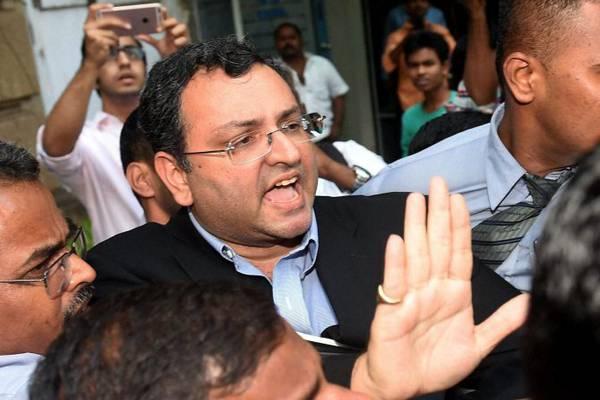Parting Ways of Ratan Tata, Cyrus Mistry May Cost $16 Billion For Tata Sons

Mumbai: The unexpected ouster of Cyrus Mistry from Chairman position at Tata Sons is creating tremors in the Indian corporate world. The separation between Cyrus Mistry and Tata Group's majority owners may now be heading for a split. Ratan Tata, who returned to head the conglomerate replacing ousting Cyrus Mistry as interim Chairman, is part of a panel to look for a suitable replacement at the helm of affairs. Bloomberg News reported Thursday.
The 18.4 percent stake in the $26bn worth Tata Group, it’s estimated to be Rs28billion by 2017, is expected to be $16bn (Rs1,07,000 crore) for Cyrus Mistry, according to a report by Bloomberg. However, this is subject to valuation and book value.
Cyrus Mistry's father Shapoorji Pallonji Mistry is the single largest stakeholder in Tata Sons as he holds 18.4 percent stake. Should Mistry agree to sell, how much can he hope to get for his family's 18.4 percent of Tata Sons is the billion dollar question making rounds in the Dalal Street. The 18.4 percent stake in the $26bn worth Tata Group, it's estimated to be Rs28billion by 2017, is expected to be $16bn (Rs1,07,000 crore) for Cyrus Mistry, according to a report by Bloomberg.
For instance, the probability of status quo on group’s valuation is 50 percent, while the probability of a massive writedown is 20 percent, and that of an improvement is 30 percent, adds Bloomberg saying that this may give a one-year-forward book value of $23 billion. Considering that General Electric Co trades at three times its estimated book value for next year and companies in the more diversified Tata Group sell at 4.8 times. Cyrus Mistry could perhaps ask for a halfway-house multiple of 3.75 times and this puts his 18.4 percent stake at a little under $16 billion.
Soon after his dismissal, Cyrus Mistry raised some very serious allegations about both the Tata Sons and other biggest publicly traded units. In hitting back at the board that fired him, Mistry said the group's net worth of $26 billion could be impaired by as much as $18 billion, shrinking to just $8 billion, should writedowns be needed at businesses like Tata Steel Ltd.'s European operations; Tata Motors Ltd.'s passenger car business (ex-Jaguar Land Rover, the jewel in the empire's crown), Indian Hotels Company's overseas Taj properties, one of Tata Power Ltd's plants, and a floundering wireless telecom venture with NTT Docomo Inc, said Bloomberg.
There could be possibility that Ratan Tata's return to a conglomerate he chaired for two decades will reinvigorate the operating companies. Considering the stakeholding by Shapoorji Pallonji Mistry, Tata Group may not repeat a near sevenfold increase in book value over the period 2004-2012. However, if global steel demand stabilizes, then there would be a fair chance that the group's assets reaching a book value of $28 billion by 2017. In the base-case scenario, the salt-to-software Indian conglomerate won't be any worse off, and its assets would be worth in 2017 what they are $26 billion.
For instance, the probability of status quo is 50 percent, while the probability of a massive writedown is 20 percent, and that of an improvement is 30 percent, adds Bloomberg saying that this may give a one-year-forward book value of $23 billion. Considering that General Electric Co trades at three times its estimated book value for next year and companies in the more diversified Tata Group sell at 4.8 times, Mistry could perhaps ask for a halfway-house multiple of 3.75 times, valuing his 18.4 percent stake at a little under $16 billion.
Coming to Cyrus Mistry, at $16 billion, he would walk away with an annualized 4.5 percent return on the $200 million loan the Tata family took from outsiders 91 years ago. Include past dividends, and he might even have matched or beaten the nine percent annual return from the US stock market since 1928. Considering all these facts, the parting ways is an expensive task for Tatas.




